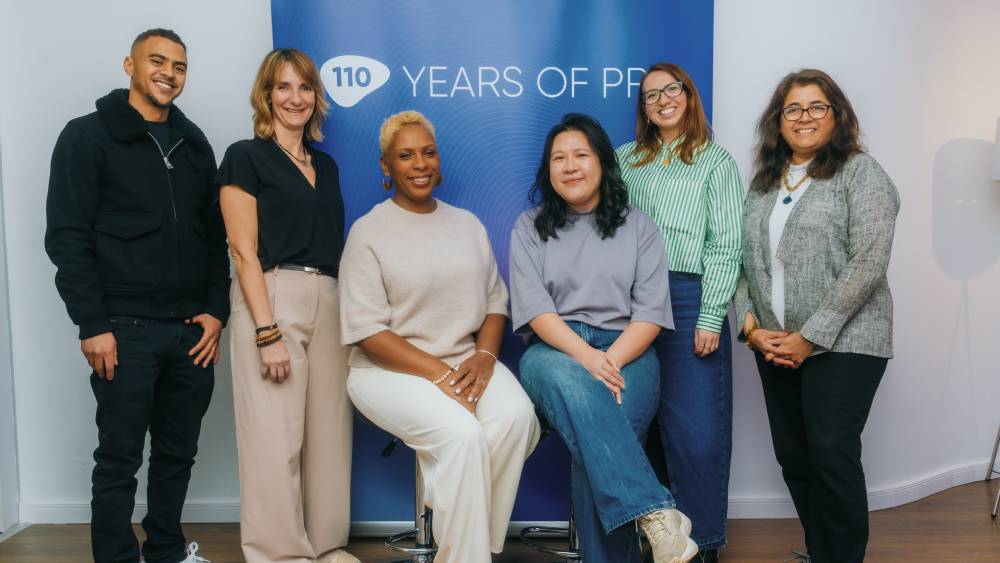Last week saw an audience of artist, songwriter, composer and producer PRS members convene at the OXO Tower's OXO2 in central London for the latest PRS Connects session, Succeeding in Sync.
The sold-out event, hosted by PRS Members' Council President Michelle Escoffery, featured an expert panel — composer Nainita Desai, music executive Amy Ho, Phrased Differently's Sync and Marketing Manager Charlotte Day, songwriter/producer Swindle and PRS for Music's Business Development Manager Sophie Elliott-Sheen — who delved into the ins and outs of the sync process and explored how music creators can break into this sought-after space for the first time.
Ahead of this PRS Connects session, M caught up with our five panellists to get their top tips on succeeding in sync.
Nainita Desai
'I'm a composer for film, television and video games, so I come at sync from a slightly different perspective [to non-composers]. But, ultimately, we're dealing with the same people. My advice would be to network, network, network. If you're a shy wallflower, try to come out of your shell and be confident because you never know where your sync is going to come from. You want to be mixing with music editors, music supervisors, film directors; go to film festivals; read the trades and see what projects are coming out.'
Sophie Elliott-Sheen
‘The most important thing, I would say, is to make sure your work is registered with PRS. No matter how good your track is or how good you are at pushing it out there, if people can't find the ownerships for it or can't find you to licence it, then they can't use the track. It's really important, then, to make sure it's registered.'
Amy Ho
‘I've got two tips: be very responsive [to requests], but also know your publishing and writer splits. If you have a co-writer, it's good to know who your co-writers are. If you're published, know who your publishers are. Have that information handy and send it to us when we ask.’
Swindle
‘Take the opportunity to release the music that you really like, and in that you will create an individualism to your music. That’s what's worked for me with sync, actually: before I was composing for sync the music that I released was getting synced heavily, and I think that might have been because there wasn't much other music like it. So take the opportunity to put out music that you really feel, without trying to make something that fits in a certain way. Sometimes, that can be a quick route to being attractive to sync agents.’
Nainita
'You also need to be authentic. By that, I mean be true to yourself and your own music. It takes time to develop your own sound, passion and musical genre. Don't try to be a jack of all trades: create your own identity and develop your own music. That's particularly great in terms of music production. You're gonna be competing with all the great artists out there, so you want to create your own album, your own branding on social media, all of those things. It's more than just being in a studio, composing and writing your own music. You've got to think about the 360-service in terms of being a great collaborator, getting out there, meeting film directors, going to industry events and just being true to yourself.'
Charlotte Day
‘I think the most important thing is to write music from the heart. I think the most special moments in sync are when an amazing, heartfelt song is connected to the moving picture, and you can really feel that because it's authentic and genuine. So I would try to not write solely thinking about sync, and just write something that you love.’
Sophie
‘I think the other really important thing with sync is knowing your rights. In terms of negotiating deals, if you’re lucky enough to get a sync you need to know what they're trying to buy from you and what they're offering you for the use of the work. So, know your rights, or have someone work for you that does, to make sure that you can protect them.'
Nainita
'Ultimately you will find your way by having that perseverance, passion and tenacity. I think the reason I've got to where I am after 20-something years is that I never gave up. You just get better and better and better at your craft the longer you spend on it.'


